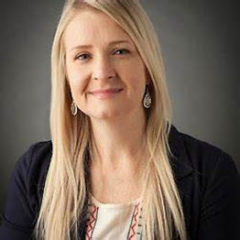It is like yeast that a woman took and mixed into about sixty pounds of flour until it worked all through the dough.” Luke 13:21
It has been said that “if you want to go fast, go alone. If you want to go far, go together.”
There is debate about this proverb’s attribution, and yet experience undergirds it. The process of forming a fresh expression has been likened to a journey. One on which you might never arrive at its destination without some key people involved.
The journey does not, however, require that everyone in your church be on board before you start a fresh expression. In fact, it is unlikely you will get everyone on board, particularly in older, inherited models of church. Shifting paradigms around how we define church can be especially challenging in these contexts. These churches may have existed in attractional models for decades or even more than a century and not yet have felt the full weight of post-Christendom decline. Forming new models may not prove as urgent for some as it does for others. While you will likely not get everyone “on board” with creating these new forms of church, there are some key people and practices that “bring leaven to the whole.”
While you will likely not get everyone 'on board' with creating these new forms of church, there are some key people and practices that 'bring leaven to the whole.'
Tweet this.
Before sharing these practices, it’s important to understand the key roles on the fresh expressions journey: the pioneer, the permission giver, and the supporter. While the pioneer is the entrepreneurial leader that starts the new form of church, the permission givers and supporters are needed to make that possible. Permission givers are decision making leaders who release people and resources, cast vision, convene conversations and connect gifts with mission. For our purposes, these would be the lead pastors, judicatory leaders, or church leadership committees and/or boards. Supporters are those who come alongside the formation of this new faith community, and will pray for, resource, and encourage the movement toward FX and beyond.
Permission givers are decision making leaders who release people and resources, cast vision, convene conversations and connect gifts with mission.
Tweet this.
In my experience with developing permission givers and supporters there are 3 practices that move the movement forward; a focus on your why, identification of people of peace, and sharing compelling stories.
Reggie McNeal shares in Missional Renaissance, “To change culture you have to change the conversation.” Often conversations amongst church leaders center around offering new or improved programs or executing excellent worship services, and generally asking the question, “how do we get more people to come to us?” This perpetuates the focus on the existing models rather than thinking creatively about new models.
Focus on Your Why
Whether the why is the reality of decline and inability of the church in its current form to reach more than 60% of people, or if it is to better connect and engage its community, or if it is to share the good news with people that will never walk in the doors of our buildings on Sunday morning due to the pace of our 24/7 society or increasing population of nones and done, ask questions about how church members might be experiencing these things personally. Ask, “Do you have a friend or family member that is not connected to any church? What of what you call church would you be willing to give up in order to connect them with a faith community? When you look at our community who is missing in our church? Why do you think that is? What would it look like to be with these people God loves also?”
Finally, share reminders of the love of God that sent Jesus and is also sending us. “There are only two ways to influence human behavior: you can manipulate it or you can inspire it.” (Simon Sinek, Start with Why: How Great Leaders Inspire Everyone to Take Action)
Identify the People of Peace
People of peace are connectors. This reference comes from the gospels when Jesus sends out the disciples in Luke 10 and instructs them to look for the people of peace, the door openers, who already have the trust of the group we are seeking to connect and build community with. In the FX movement, these are people in the community outside of our existing churches that often open doors to people or places not yet connected to any church.
In building a culture of FX in our traditional, inherited models of church, identifying the people of peace in the congregation serves much the same purpose. As someone who is new to a context, identifying and partnering with the people of peace within the existing congregation accelerates the momentum and capacity for FX because the bank of trust has already accumulated interest with the larger church. Pray for God to reveal these people to you and for these people to present themselves to you as you share the “why” and the stories of FX.
Share Compelling Stories
Tell the stories where God is working and revealing God’s self in your community and inviting you to join that work. Share about all of the firsts; people experiencing and hearing about God’s love for them for the first time, encountering a new sense of family and belonging, people deciding that maybe Christians aren’t as bad as they thought. Share about the new people getting to share in a faith community who were previously unable to due to a work schedule that prevented it. Share how people from all different backgrounds are coming together around a love for hiking and the outdoors that prayed together for the first time. Share stories about how these newly forming communities of faith are finding ways to pool resources and give back to their city. Share how people are inviting unchurched friends who are finding space that invites questions and conversations about faith and life.
You might never get everyone on board, but these practices with these people will prove helpful in leavening the whole church with a Kingdom, mission-oriented mindset, and a passion for seeing people invited into relationship with Jesus.


